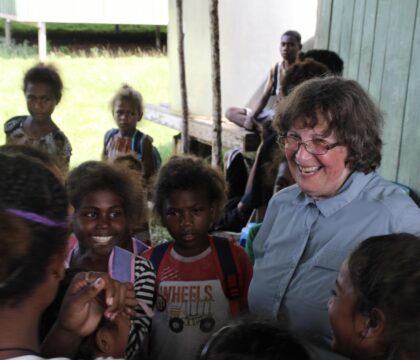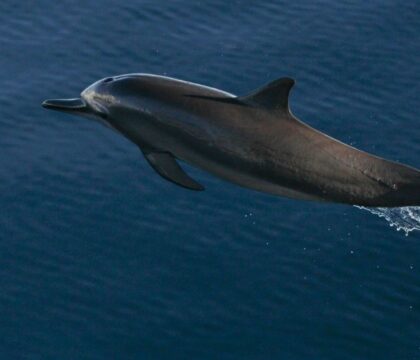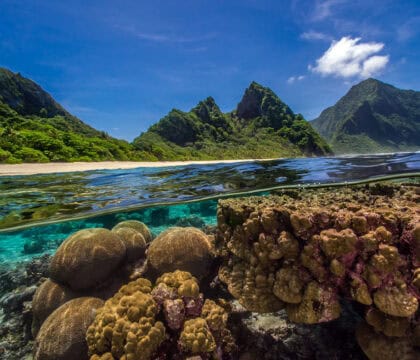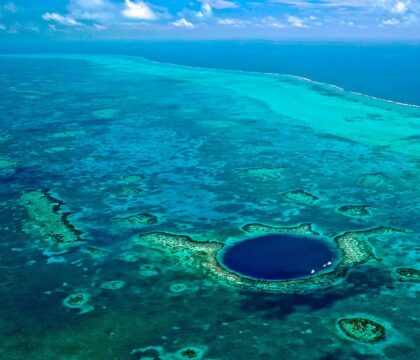October 7, 2022 • Program Updates
On September 17, 2022, Oceanic Society teamed up with organizations worldwide to clean up some of Earth’s most important coastal and ocean habitats, and we are excited today to share our 2022 Global Ocean Cleanup results. More than 400 volunteers joined cleanups in Guatemala, Hawaii (USA), India, Kenya, Miami (USA), Palau, San Francisco (USA), and Spain, collectively removing more than 4,598 lbs of trash from the environment. Cleanup locations included sea turtle nesting beaches, albatross habitat, mangrove forests, and coastlines adjacent to sensitive coral reefs and marine mammal hotspots.

The cleanups were part of the 2022 Global Ocean Cleanup, an effort that brought together organizations, brands, and artists to fight ocean plastic pollution. In addition to the cleanups, participating organizations created one-of-a-kind artwork from the marine debris they collected to help inspire audiences worldwide to get involved in the global movement to reduce ocean plastic pollution.
Global Ocean Cleanup Results, Partners, and Locations
Following a global call for participation that received more than 70 applications, Oceanic Society selected seven partners worldwide to participate in the 2022 Global Ocean Cleanup. Each organization received a grant of $2,000 from Oceanic Society to help lead and document a cleanup of their local coastline and to create artwork from the collected material. In addition, Oceanic Society led a cleanup in its hometown of San Francisco, California.
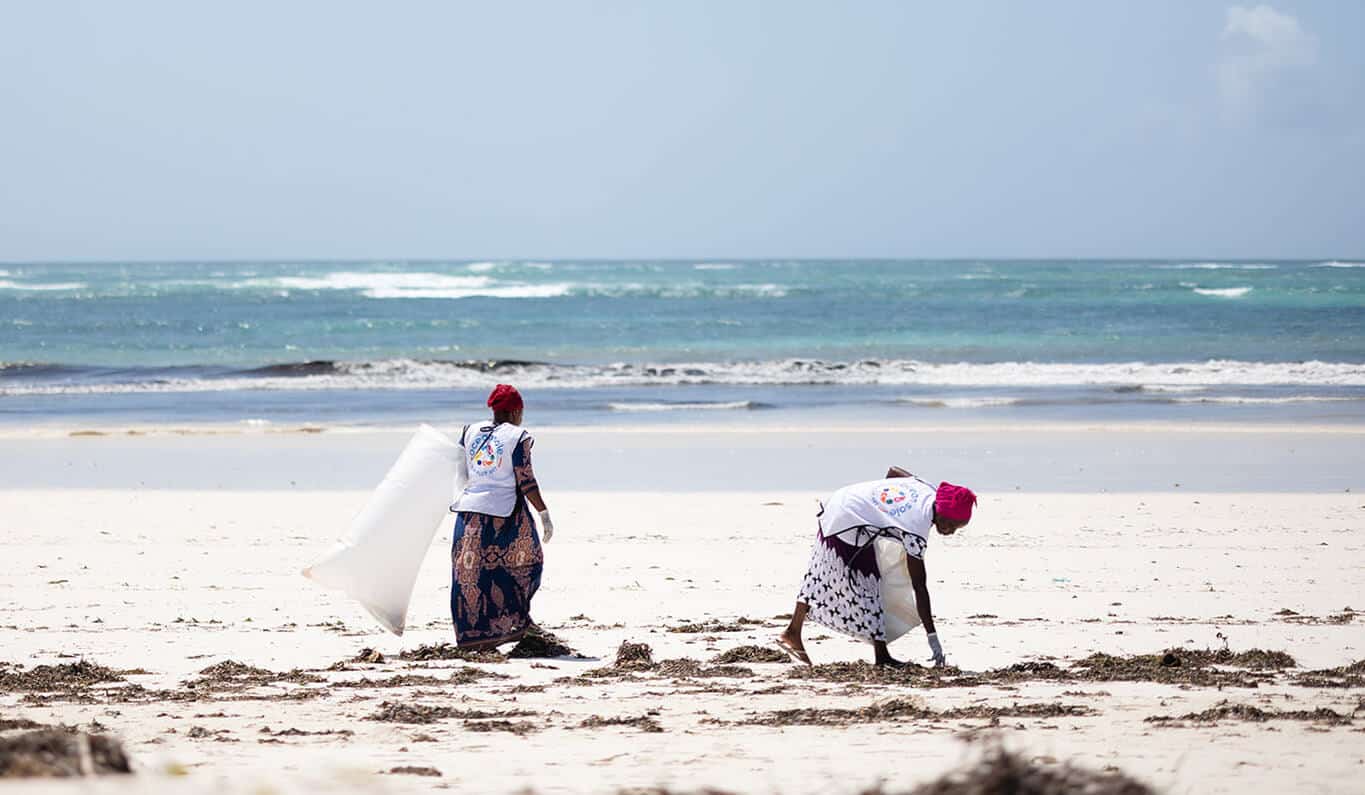
More than 400 volunteers participated in cleanups in 8 locations globally, including Kilifi, Kenya, above. © Ocean Sole
Collectively, 400+ volunteers removed more than 4,598 lbs of waste from the environment as well as many thousands of microplastic pieces. The locations, partners, and results were as follows:
- Sustainable Coastlines Hawaii — Kahuku Beach, O’ahu, Hawai’i, U.S.A.
- 30 volunteers
- 107 lbs of waste collected + thousands of microplastics
- Asociación Ambiente Europeo — Playa las Palmeras, Almería, Spain
- 15 volunteers
- 397 lbs of waste collected
- Semillas del Océano — Sipacate-Naranjo National Park, Guatemala
- 35 volunteers
- 716 lbs of waste collected
- Ocean Sole — Kilifi, Kenya
- 70 volunteers
- 1,075 lbs of waste collected
- Young Environmentalists Programme Trust — Kadmat Islands, Lakshadweep, India
- 120 volunteers
- 551 lbs of waste collected
- Paddling Palau — Orchid Cove, Rock Islands, Palau
- 10 volunteers
- 500 lbs of waste collected
- Big Blue & You — Watson Island, Miami, Florida, U.S.A
- 90 volunteers
- 1,011 lbs of waste collected
- Oceanic Society — Ocean Beach, San Francisco, California, U.S.A.
- 31 volunteers
- 241 lbs of waste collected + thousands of microplastics
The most common items collected across cleanup locations were plastic beverage bottles and caps, followed closely by food wrappers, bags, and utensils. The most unusual items reported included slippers and shoes, handbags, plastic toys and dolls, a bike helmet, and glass vials.
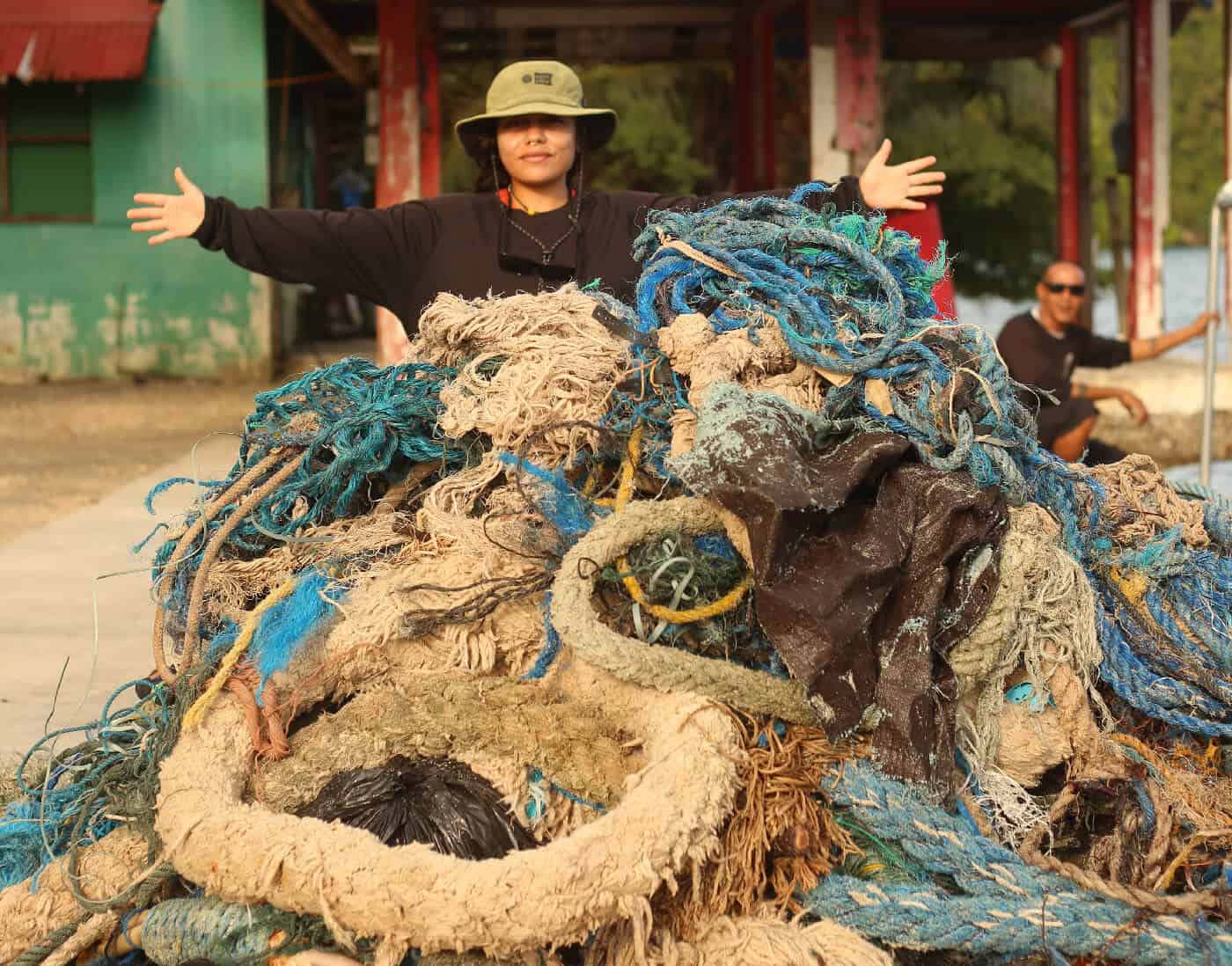
In some locations, including Palau (pictured above), large quantities of fishing gear were found and removed. © Paddling Palau
The types of waste encountered varied from location to location. Partners in Spain, Hawaii, and Palau reported large quantities of fishing gear (e.g. buoys and floats, net pieces), and Spain also found a significant amount of agriculture related waste. Microplastic sifting was done in Hawaii, San Francisco, and Palau, with more than 300,000 microplastic fragments reported in Hawaii. Kenya collected a significant amount of clothing, sneakers, and flip flops, while Guatemala alone reported over 800 plastic beverage bottles. In India, more than 300 plastic bags were collected at a single site.
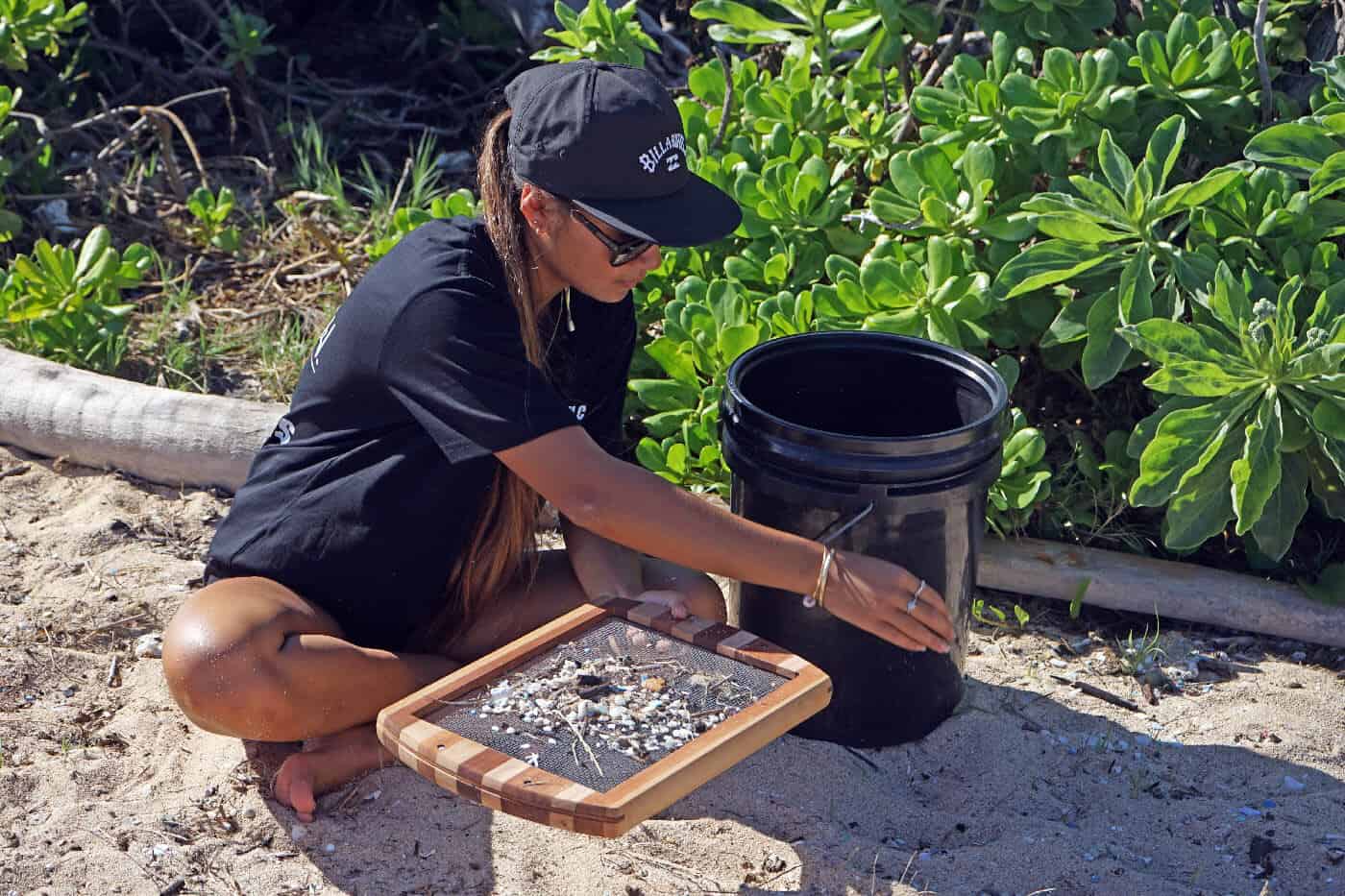
A volunteer sifts for microplastics on Kahuku Beach in Oahu, Hawaii, where more than 300,000 microplastic pieces were removed. © Sustainable Coastlines Hawaii
Marine Debris Art Competition
In addition to their cleanups, five of the participating organizations created unique artwork using collected waste. The resulting works were reviewed and scored by a panel of judges that included renowned artists and ocean conservationists, as well as through an online audience vote that received more than 2,000 votes.
The art competition results were as follows:
- Judge’s Choice Winner ($500): Ocean Sole (Kenya)
- Runner-Up ($500): Semillas del Océano (Guatemala)
- Audience Choice Winner ($500): Ocean Sole (Kenya)
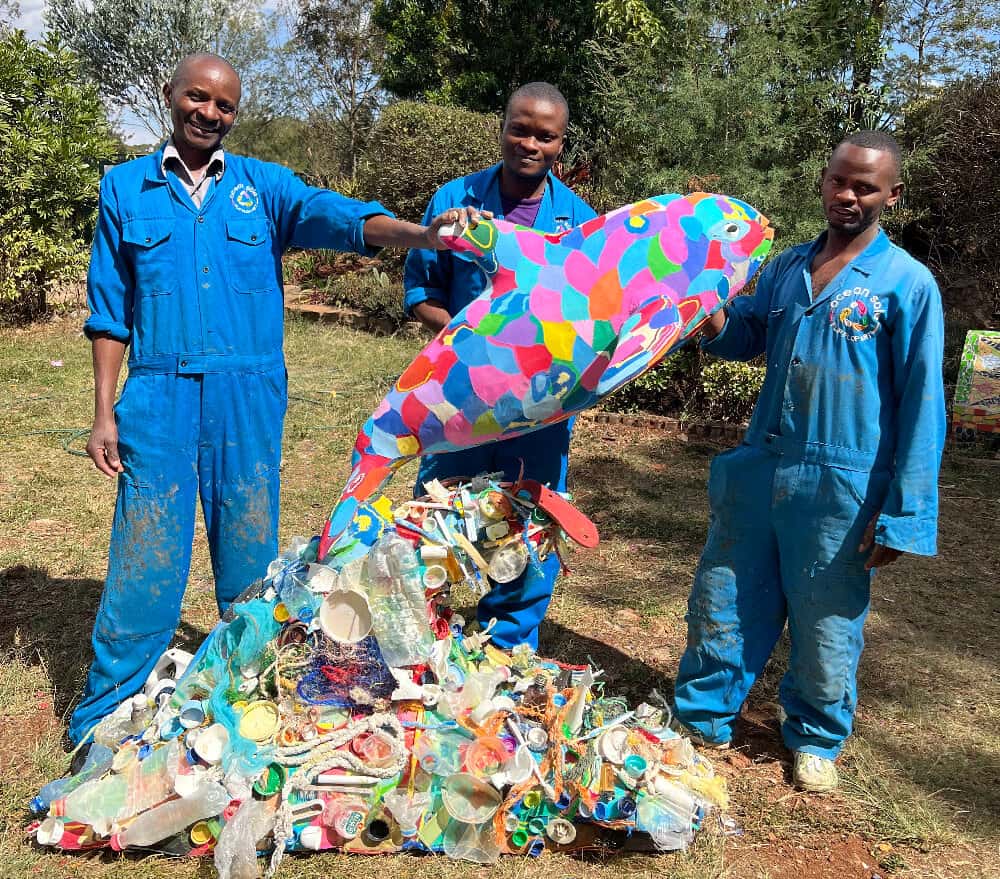
Artists from Ocean Sole display their winning artwork, which depicts a vaquita rising from a sea of trash. © Ocean Sole
Winning organizations will receive additional support from Oceanic Society for their ocean conservation efforts, with $1,000 going to Ocean Sole in Kenya and $500 to Semillas del Océano in Guatemala.
About Ocean Plastic Pollution & Solutions
Plastic pollution is one of the greatest threats to ocean health worldwide. With skyrocketing plastic production, low levels of recycling, and poor waste management, between 4 and 12 million metric tons of plastic enter the ocean each year—enough to cover every foot of coastline on the planet! And that amount is projected to triple in the next 20 years.
In the ocean, plastic pollution impacts sea turtles, whales, seabirds, fish, coral reefs, and countless other marine species and habitats. In fact, scientists estimate that more than half of the world’s sea turtles and nearly every seabird on Earth have eaten plastic in their lifetimes. Plastic pollution also mars otherwise beautiful beaches, coastlines, and snorkel and dive sites worldwide, even in remote areas.
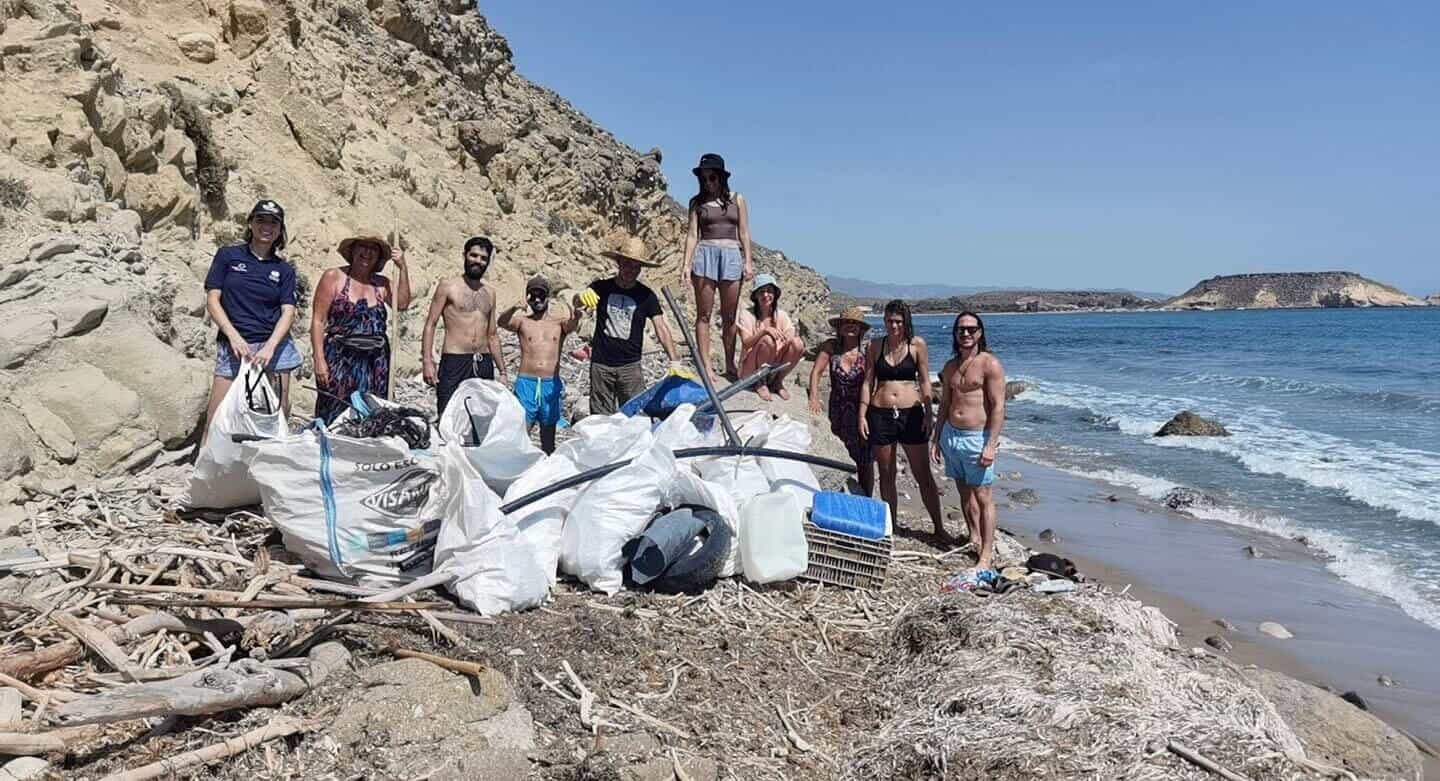
Plastic pollution is found even in remote or inaccessible places, like Playa las Palmeras in Almería, Spain where nearly 400 lbs of trash were removed. © Asociación Ambiente Europeo
In spite of the enormous scale of this problem, there are many existing solutions to plastic pollution and a growing global movement to fight ocean plastic pollution. Cleanup efforts such as the Global Ocean Cleanup represent an important and meaningful action that everyone can participate in to reduce the amount and impact of plastic in the environment. Cleanups not only remove harmful waste from the environment and beautify our coastlines, they also allow us to better understand the types and sources of waste entering our oceans, as well as give us a way to come together to make a tangible impact against this immense problem.
But, while important, cleanups do not address the root causes of the ocean pollution problem, which include the creation, demand, use, and improper disposal of single-use plastic. Much more work is urgently needed from corporations, governments, communities, and individuals to solve the plastic pollution crisis in support of healthier oceans, healthier communities, and a healthier planet.
Cleanup Campaign Sponsors
The 2022 Global Ocean Cleanup was made possible through the generous support of Planet Oat Oatmilk, Seiko, and private donations.
Support from Planet Oat went toward the global cleanup campaign and was made as part of their Planet Oat Project, the brand’s pledge to support organizations that better the world we live in. Oceanic Society has been receiving support from Planet Oat since 2020—learn more here.
Support from Seiko went towards the cleanup events in Miami, Florida and San Francisco, California, as well as the digital campaign. Seiko staff and local retail partners also joined in the cleanup efforts on September 17 in both Miami and San Francisco. With this sponsorship, Seiko, a leader in diver’s watches, is continuing their long-term commitment to ocean conservation—learn more here. Oceanic Society has been receiving support from Seiko since 2021—learn more here.
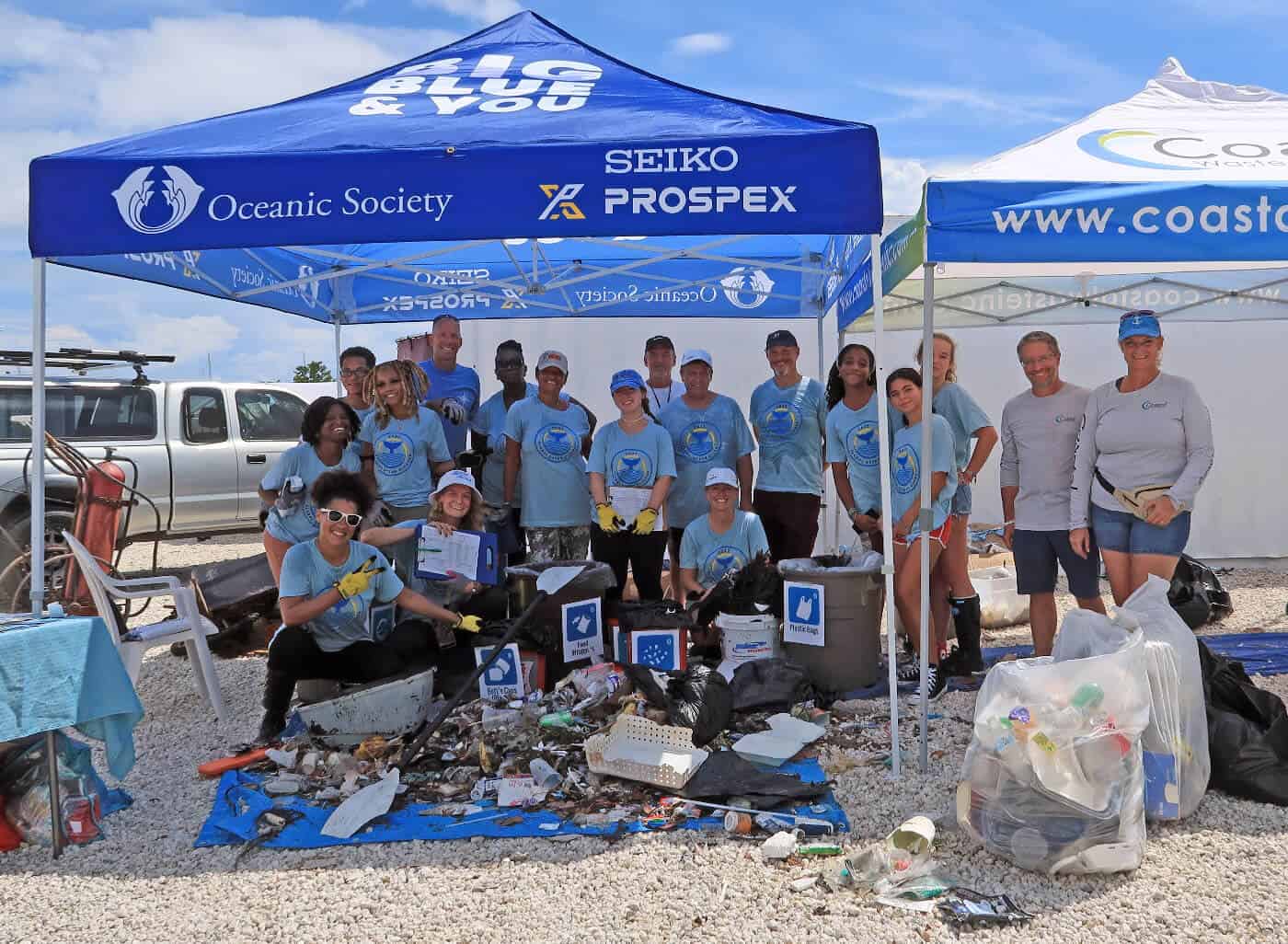
Staff from Oceanic Society and Seiko joined the cleanup and brand audit led by Big Blue & You and Blue Scholars Initiative in Miami, Florida. © Big Blue & You

